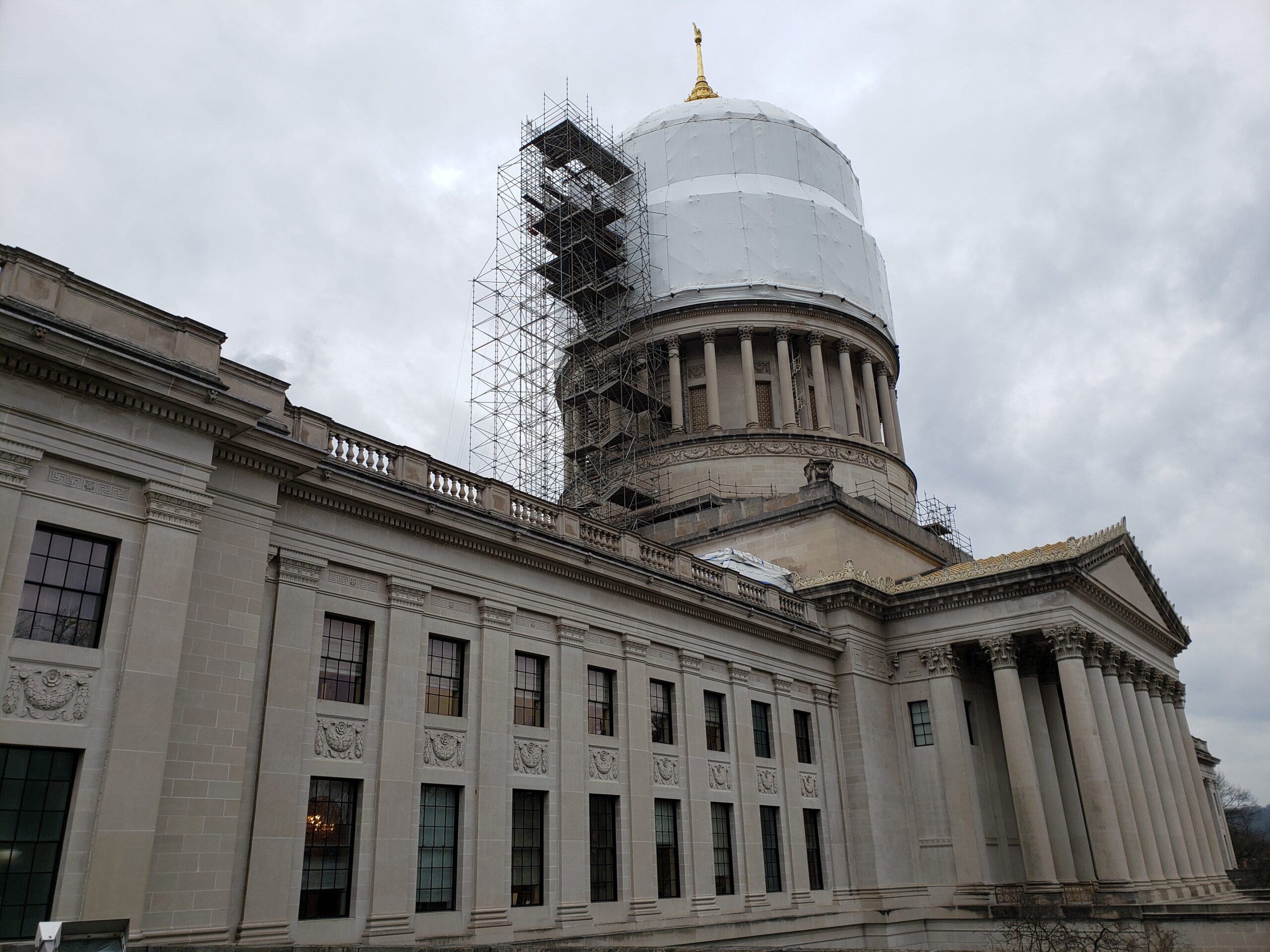MORGANTOWN — The writing was on the wall on Monday for SJR 9, the Senate’s lynchpin business tax cut constitutional amendment. Its companion tax cut bill, SB 837, barely passed that day, 17-16.
SJR 9 needed a supermajority 23 votes to pass and keep SB 837 alive. It didn’t come close, failing Tuesday, after nearly two hours of debate, with a bare majority, 18-16.
SJR 9, if approved by a supermajority of both houses, would have put before the voters in November a proposed amendment to allow the Legislature to classify property as real or personal for the purposes of taxation. It would eliminate the constitutional requirement for uniform taxation and allow the Legislature to set varying rates for differing “species” of personal property, or exempt one or more species from taxation.
SB 837, which is technically alive in the House but effectively useless and dead without the constitutional amendment to enable it, would have phased out three taxes over the course of six years, starting April 1, 2021: the manufacturing inventory, equipment and machinery tax; the retail inventory tax; and the personal property tax on automobiles, including ATVs and utility vehicles. Newly purchased items would be immediately exempt.
Judiciary chair Charles Trump, R-Morgan, kicked off the debate, explaining that the state Constitution limits the Legislature’s power to change the tax structure.
“It is really strange that we’re talking about having to amend the Constitution to give the Legislature the authority to lower or eliminate people’s property taxes.”
Big business, he said, has the leverage to negotiate such things as PILOT deals, but small business and individuals don’t, and this package would benefit them.
And while it’s not perfect, he said, future legislatures would be able to refine it. “The idea that the legislature is precluded by the Constitution from lowering people’s taxes is insane. … We have to trust the people of West Virginia.”
Opponents listed various concerns about the amendment and the whole package.
Sen. Mike Romano, D-Harrison, said it would usurp the local control of counties and cities. And SB 837 is a deception, replacing $300 million of tax cuts with $200 million worth of hikes on individuals. “We shouldn’t ask our people to vote on a deception that’s s a tax increase on individuals.”
Sen. Paul Hardesty, D-Logan, said, “I’m against this resolution today because I think I’m speaking today for 167 county commissioners 55 assessors and 55 sheriffs, who are our county tax collectors. I believe that county government autonomy will be severely impaired.”
Sen. John Unger, D-Berkeley, said the Legislature has repeatedly broken promises to give employee raises and make tax cuts. “I don’t trust this body.”
And Majority Leader Roman Prezioso, D-Marion, in a floor conversation with Finance Chair Craig Blair, R-Berkeley, noted that Blair hadn’t thoroughly determined House sentiment on the bill, and that the governor has flip-flopped on his position. That cast doubt on the resolution’s fate if the Senate adopted it.
In support of the bill, Majority Whip Ryan Weld, R-Brooke, said, “This is a decision of the people of the state to make about their money.”
Sen. Eric Tarr, R-Putnam, pointed out that the sales tax hike wouldn’t fall exclusively on West Virginians. About 20% of sales taxes are paid by tourists and people passing through the state. It’s similar with tobacco purchases.
With the long debate nearing its end, Blair saw the resolution heading for failure. Both measures deserved to go to the House for further consideration, he said. “And that’s not going to happen here today.”
But he passionately defended it, taking offense at the suggestion the package was a deception. It’s all spelled out in the two measures, and he’s been transparent since the beginning, he said.
He focused not on the business tax cuts, but on the automobile tax elimination (a Democrat amendment to limit the resolution to just that failed). The minority thinks that killing SJR 9 will end the public desire to end the personal property tax on vehicles, he said.
“That will not happen.” He will continue promoting that measure on social media, in emails and any other means he can use. Given election cycles, he may have to wait another two or four years. “I’m married to this issue and I’m not getting a divorce.”
In closing, Trump tried to remain optimistic. “You know what plan is available to us if this resolution is defeated? None. Without this resolution, the door is closed. … Until each of us presses a red or green button, there’s hope.”
As with the vote on SB 837, two Republicans – Sens. Bill Hamilton, R-Upshur, and John Pitsenbarger, R-Nicholas – joined the Democrats. Even if they had voted with the GOP, the measure still would have failed, needing three Democrats to also vote yes.
The Senate Democrats issued a release after the vote summarizing their opposition. “Democrats heard from citizens and county officials from throughout West Virginia who were adamantly opposed to both bills. The Republican plan would introduce inconsistencies in the personal property tax system. The Republican plan would overwhelmingly benefit out-of-state corporations and the wealthy, even with the elimination of the tax on vehicles.”
The West Virginia Manufacturers Association supported the measures and lamented the failure in a release. “This is an unfortunate turn of events for West Virginia voters. The passage of SB 837 on Monday set the stage for a true transformation for car owners, retailers and manufacturers that will benefit the entire state. But today’s vote by the West Virginia Senate, largely on party lines, robbed West Virginia voters of the opportunity to have the final say in whether that tax reform should happen.”
Tweet David Beard @dbeardtdp Email dbeard@dominionpost.com




